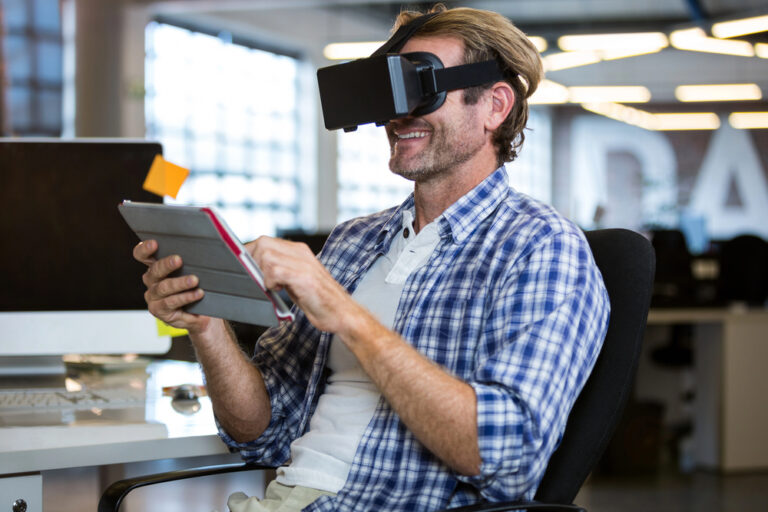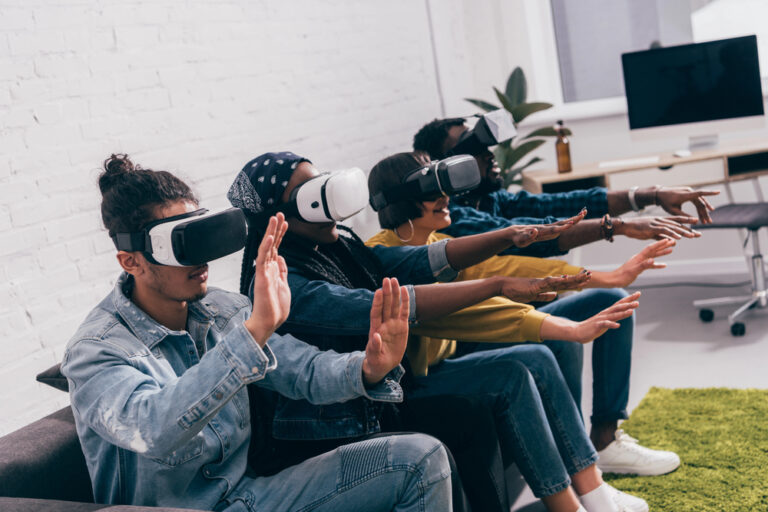AI in Social Media: How Artificial Intelligence Is Changing Online Engagement
Artificial Intelligence (AI) is reshaping the way we connect, share, and engage on social media. From personalized recommendations to advanced content creation tools, AI has become a key player in social media marketing and user interaction. Let’s take a closer look at how AI is changing online engagement and transforming social media.
Personalizing User Experiences
One of AI’s biggest contributions to social media is its ability to tailor the user experience. AI algorithms analyze user data to understand individual interests and preferences. Social media platforms like Instagram, Facebook, and TikTok use AI-driven recommendation engines to show users content they’re likely to enjoy, boosting engagement.
- News Feeds: AI curates what shows up on your feed, ensuring you see posts from friends, pages, and groups that matter most to you.
- Suggested Content: Platforms use AI to suggest posts, videos, or accounts based on your interactions, making discovery more personalized.
- Targeted Ads: AI enables advertisers to reach their desired audience with precision, analyzing past behavior to deliver ads to the right people at the right time.
Improving Customer Service with Chatbots
Chatbots have become a game-changer in social media customer service. AI-powered chatbots on platforms like Facebook Messenger provide instant responses to customer inquiries, enhancing user satisfaction and engagement.
- Instant Support: Chatbots handle frequently asked questions, resolving issues quickly without human intervention.
- 24/7 Availability: Chatbots allow brands to offer round-the-clock support, engaging customers whenever they need assistance.
- Sales Assistance: Chatbots can recommend products, answer questions, and even guide users through the purchasing process, making social media a more interactive shopping experience.
Enhancing Content Creation and Management
AI tools have transformed the way marketers create and manage content. From writing captions to generating visuals, AI helps streamline content creation for social media.
- Visual Content Creation: AI-powered design tools like Canva and Adobe Spark use AI to help users create visually appealing content quickly, offering templates and design suggestions.
- Copywriting Assistance: AI-driven writing tools can generate captions, suggest headlines, and optimize content for engagement, allowing marketers to create more engaging posts in less time.
- Content Scheduling: Social media management platforms like Hootsuite and Buffer use AI to determine the best times to post, ensuring content reaches the largest audience possible.
Detecting Trends and Analyzing Data
AI is incredibly useful for social media analysis, helping brands stay ahead of trends and understand audience behavior.
- Social Listening: AI-powered social listening tools track mentions, hashtags, and trends in real-time, allowing brands to join relevant conversations and engage with trending topics.
- Predictive Analytics: AI algorithms can predict future trends by analyzing past user data, giving brands insights into what content is likely to perform well.
- Sentiment Analysis: AI analyzes the tone and sentiment of comments, reviews, and mentions, helping brands understand how users feel about their products or services.
Enhancing Security and Filtering Content
AI plays a vital role in keeping social media platforms safe and maintaining a positive user environment.
- Content Moderation: AI helps platforms filter out harmful or inappropriate content by identifying and removing posts that violate guidelines, reducing the need for human moderators.
- Detecting Fake News: AI algorithms are used to identify and flag fake news and misinformation, helping maintain the credibility of information shared on social media.
- Spotting Bots: AI can detect fake accounts and bot activity, ensuring that user engagement is genuine and keeping social platforms free of spam.
Enabling Smarter Influencer Marketing
Influencer marketing has become a major part of social media, and AI helps brands find the right influencers to represent them.
- Influencer Matching: AI tools analyze an influencer’s followers, engagement rates, and content style to ensure a good fit with the brand, increasing the chances of a successful partnership.
- Performance Tracking: AI measures the effectiveness of influencer campaigns by analyzing likes, shares, comments, and conversions, helping brands understand the true impact of their collaborations.
- Fake Follower Detection: AI can detect fake followers in an influencer’s audience, ensuring brands partner with authentic influencers with genuine engagement.
Video Content Optimization
With the rise of video content on platforms like TikTok, Instagram, and YouTube, AI plays a big role in optimizing video engagement.
- Content Recommendations: AI analyzes viewing patterns to recommend similar videos, helping users discover new content and keeping them engaged.
- Automated Captioning: AI-powered captioning tools improve accessibility, allowing more users to engage with video content.
- Facial and Emotion Recognition: Some platforms use AI to identify emotions in videos, suggesting content based on how viewers are likely to react emotionally, creating a more personalized viewing experience.
Dynamic Ad Targeting
Advertising on social media has become more precise, thanks to AI-driven targeting. AI analyzes user data and behavior to place ads that resonate with users’ interests and habits.
- Lookalike Audiences: AI identifies users with similar profiles to your existing followers or customers, helping brands reach a wider, yet targeted, audience.
- Real-Time Ad Optimization: AI adjusts ads based on real-time data, improving performance and ensuring ad dollars are spent effectively.
- Enhanced Retargeting: AI retargets users who have shown interest in a brand’s products or services, increasing the chances of conversion by reminding them of past interactions.
Virtual and Augmented Reality Integration
AI has also made it easier for brands to integrate virtual and augmented reality (VR/AR) into social media, offering users more immersive experiences.
- AR Filters: Platforms like Snapchat and Instagram offer AI-powered AR filters that enhance user-generated content, providing brands with creative ways to interact with audiences.
- Virtual Shopping Experiences: AI allows users to try on products virtually before buying, such as testing how a pair of glasses or a new shade of lipstick would look, making social media a new avenue for online shopping.
Automating Routine Tasks
AI takes over repetitive tasks, allowing social media managers to focus on more strategic aspects of their job.
- Content Curation: AI helps curate content, suggesting relevant articles, photos, or videos to share based on user interests.
- Automated Responses: AI tools handle routine responses, like thanking users for a follow or a comment, maintaining engagement without manual effort.
- Performance Reports: AI simplifies reporting by gathering data and generating insights, making it easier to assess social media performance.
The Future of AI in Social Media Engagement
As AI continues to evolve, its role in social media engagement will likely become even more significant. New applications like voice recognition, even more advanced predictive algorithms, and improved content recommendations are on the horizon, promising to further enhance user engagement. With AI-driven innovation, social media will continue to be an increasingly engaging and personalized space for users.
AI’s impact on social media is undeniable. From content personalization and customer service to trend analysis and security, AI has transformed how brands and users connect online. By making social media experiences more relevant, responsive, and safe, AI is shaping the future of social engagement, one interaction at a time.



